Alegría
Violeta Salama / Spain / 2021 / 119 min
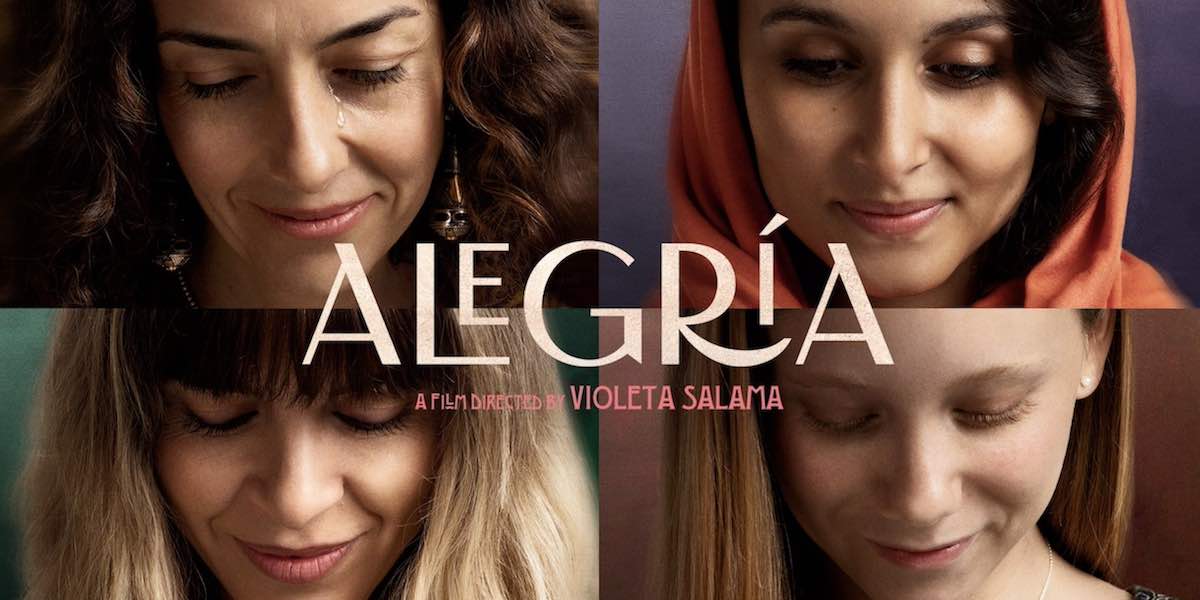
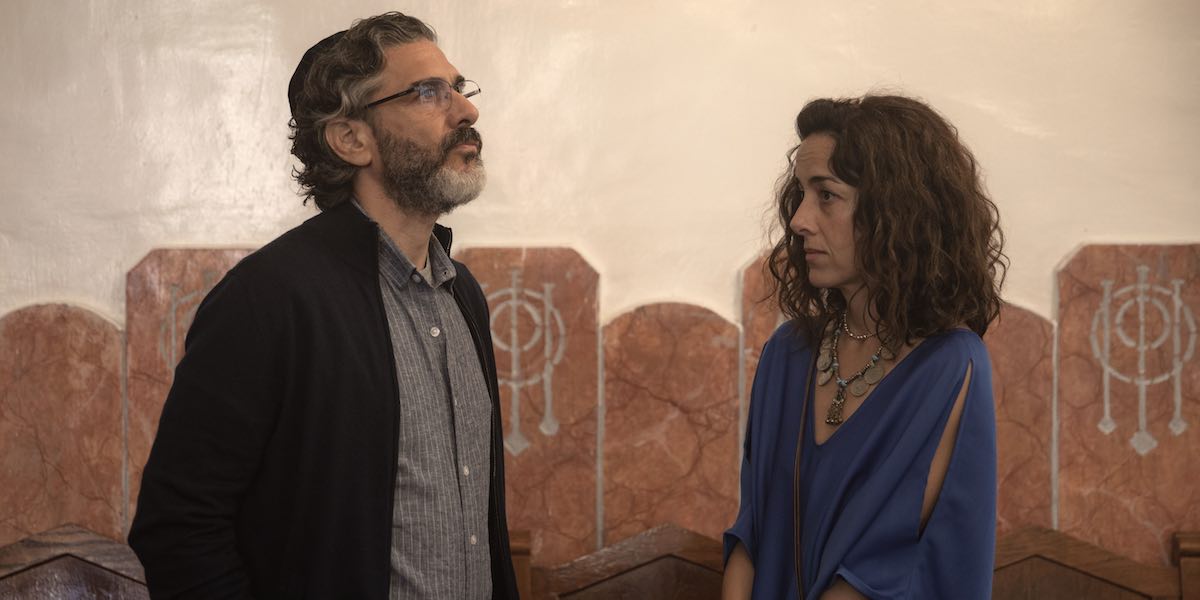
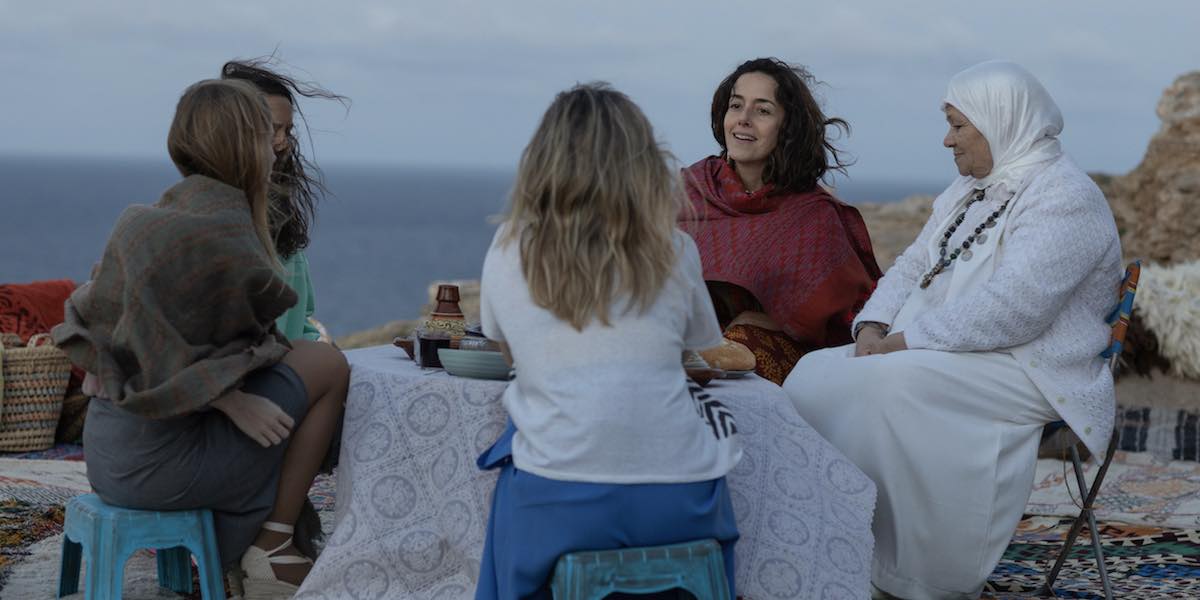
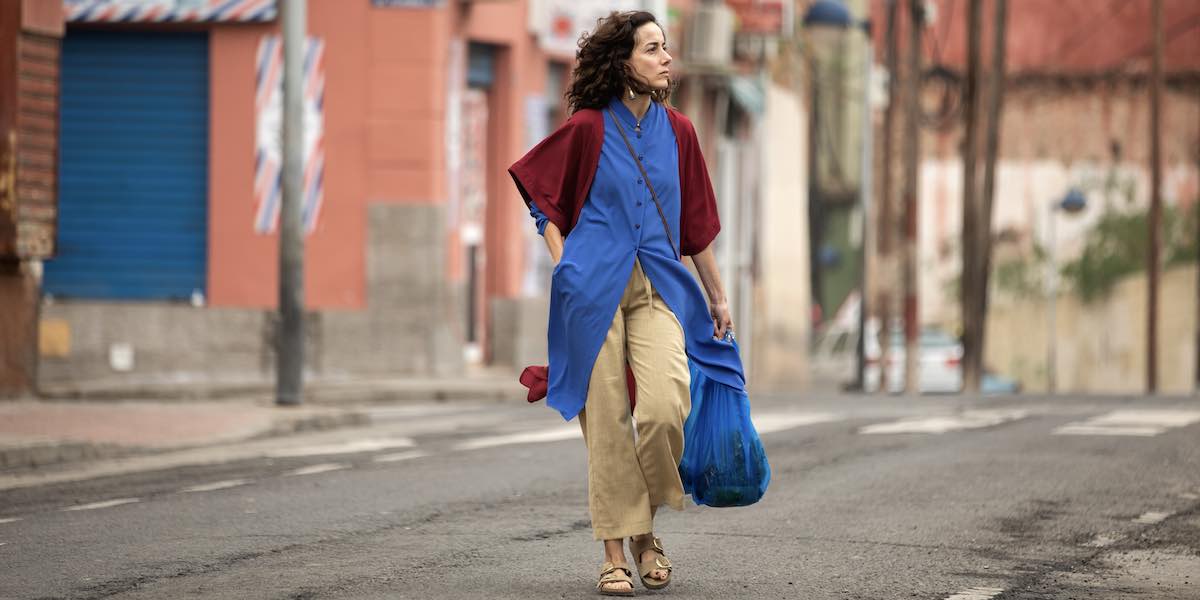
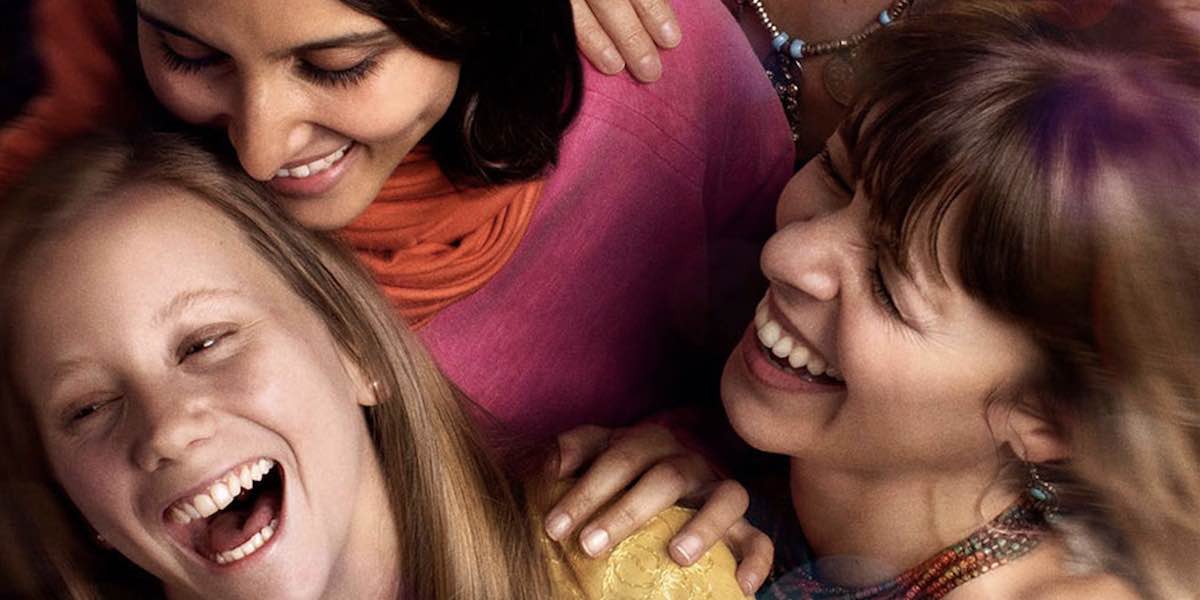
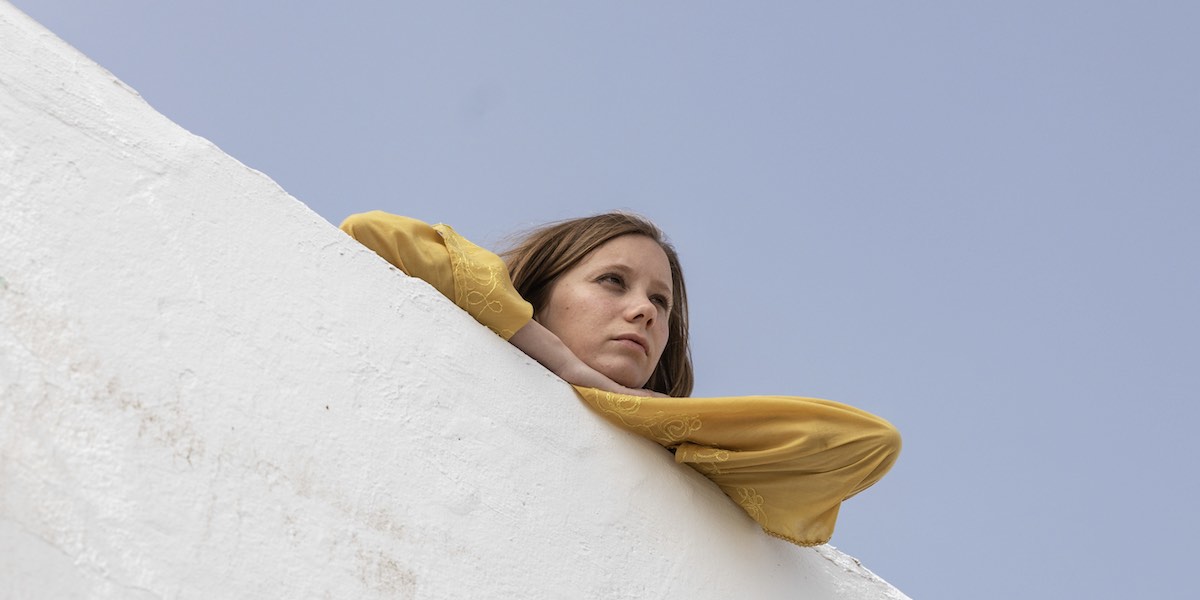
Carmen Awards
Best Art DirectionSephardi Jewish Film Festival
Pomegranate Award for Rising StarFical - Almeria Int'l Film Festival
Best DirectorGuadalajara Int'l Film Festival
Toronto Jewish Film Festival
Sevilla Int'l Film Festival
Spanish Film Club
Related Films
 Home is Somewhere Else(Mi casa está en otra parte)Carlos Hagerman, Jorge VillalobosWhy you must-see this film. Because it is the most authentic, multi-awarded animated feature documentary providing an unusual intimate window into the ...
Home is Somewhere Else(Mi casa está en otra parte)Carlos Hagerman, Jorge VillalobosWhy you must-see this film. Because it is the most authentic, multi-awarded animated feature documentary providing an unusual intimate window into the ... The Awakening of the Ants(El despertar de las hormigas)Antonella Sudasassi Furniss For thoughtful, demure young housewife Isa, life in a lush, postcard-perfect Costa Rican seaside village is far from anyone’s idea of a dream. She ...
The Awakening of the Ants(El despertar de las hormigas)Antonella Sudasassi Furniss For thoughtful, demure young housewife Isa, life in a lush, postcard-perfect Costa Rican seaside village is far from anyone’s idea of a dream. She ... Tremors(Temblores)Jayro BustamanteIn this deeply personal follow-up to his landmark debut Ixcanul, Jayro Bustamante shifts his focus from rural Guatemala to the denizens of Guatemala ...
Tremors(Temblores)Jayro BustamanteIn this deeply personal follow-up to his landmark debut Ixcanul, Jayro Bustamante shifts his focus from rural Guatemala to the denizens of Guatemala ... Sultana’s Dream(El sueño de la Sultana)Isabel HergueraWhy will your students love Sultana’s Dream? This multi-award-winning film, a work of poetic storytelling and outstanding animation, poses a ...
Sultana’s Dream(El sueño de la Sultana)Isabel HergueraWhy will your students love Sultana’s Dream? This multi-award-winning film, a work of poetic storytelling and outstanding animation, poses a ... CarajitaSilvina Schnicer, Ulises PorraFeaturing striking cinematography and outstanding performances, Carajita (which means annoying child) explores the tenuous relationship that exists ...
CarajitaSilvina Schnicer, Ulises PorraFeaturing striking cinematography and outstanding performances, Carajita (which means annoying child) explores the tenuous relationship that exists ...Synopsis
Spanish with English subtitles
With Cecilia Suárez, Leonardo Sbaraglia, Laia Manzanares, Sarah Perles, Joe Manjón
Why you must see this film. Because it conveys the crucial message that the world needs: a story of reconciliation told by a Jewish woman, a Muslim, and a Christian living in Morocco. And because it is shaped entirely by women – from the director and screenwriters to the producer. A layered, heartfelt family drama about women breaking free from patriarchal tradition in a contemporary Jewish diasporic community.
Alegría’s life takes a profound shift upon discovering that her orthodox Jewish brother insists on holding his daughter’s wedding in Melilla. Guided by Dunia, her Arab housekeeper, and Marian, her Christian confidante, Alegría embarks on a journey to connect with her roots while assisting her niece, Yael, in navigating womanhood within a highly conservative male-dominated environment.
Renowned Mexican actress Cecilia Suárez (The House of Flowers, 3 Caminos) takes the lead, infusing the film with her charisma and impeccable comedic timing, amidst a backdrop of familial tumult and conflicting traditions. The film sensitively depicts her coming to terms with her roots and the cultural past she has rejected. She may not want these traditions for herself, but she comes to understand the value they have in her community.
Alegría is also about Melilla, an autonomous, multicultural Spanish city on Africa’s north coast, where Jews, Muslims, and Christians mix and mingle and come together to make the wedding happen. It is a gorgeous evocation of a fascinating and beautiful corner of the world not often seen on-screen.
Shaped entirely by women – from the director and screenwriters to the producer, director Violeta Salama follows in the footsteps of esteemed directors like Nadine Labaki in Lebanon (notably with Caramel), Mira Nadir in India, and Leila Marraki in Morocco.
The director, Violeta Salama, may be available for an in-person or virtual Q&A. A suggested speaker fee of $300 to be agreed directly with the filmmaker is recommended in all cases. Contact us at eric@pragda.com to learn more.
Related Subjects
About the Director

Available for Q&As, Masterclasses, and workshops upon request, in English or Spanish.
Book a Screen+Talk
Violeta moved to Vancouver in 2007 to pursue a postgraduate degree in film production at Vancouver Film School. During her time there, she gained experience working in second units for major television productions such as The L Word and Smallville. In 2009, she returned to Madrid and joined the directing teams of the acclaimed Spanish series Crematorio and Amar en Tiempos Revueltos.
Her transition into cinema began with roles as assistant director on notable films like Dictado, directed by Antonio Chavarrías, and Blancanieves by Pablo Berger. In 2013, director Jaime Rosales featured segments she directed in his film Hermosa Juventud.
Violeta made her feature-length directorial debut with Alegría (2021), starring Cecilia Suárez and Leonardo Sbaraglia. In 2023, she directed the second season of the Prime Video series Días Mejores and helmed the series Detective Touré.
Press
“A comedy with an optimistic message about multiculturalism and a sense of identity, about the possibility of reconciliation, cohabitation and harmony, despite the differences that separate us.” – Júlia Olmo, Cineuropa
“Violeta Salama’s warm and sensitive feature debut, Alegría, is exactly the kind of film you look for at a Jewish Film Festival: a travelogue and a story of culture, religion, and family.” – ALEX HEENEY, Seventh Row
“First element to highlight: shown as it is shown here, with its charm, but also its contradictions, Melilla has never been seen in Spanish cinema as it is in Alegría, a powerful stroke of a new, promising filmmaker, Violeta Salama. Second element: this is a film made from a feminine sensibility.” – MIRITO TORREIRO, Fotogramas
“The women of Alegría paint a mural of strength, love, courage, compassion and trust, and at last show their bond is unbounded, finding the self in selflessness.” – JD Linville, Variety
Notes on the Film
“I aimed to explore similarities and differences through humor, exploring the conflicts we find in a place like Melilla, which are at once highly localized and universal. Melilla is one of the main characters of the story; it has always been from the very first drafts of the movie. It is a city with a population of 80,000, is 12 square kilometers, and is surrounded by a fence. Inside, three different communities have found a way to coexist. I can’t imagine this movie in any other place. Melilla is also my hometown and I have a special feeling for it. While writing the script I knew exactly where I wanted to shoot every scene, even Alegría’s house, which was shot in Sevilla, is a recreation of my grandmother’s house in Melilla.
We have always been very settled in small communities of coexistence between different cultures and religions. This is something that unfortunately is becoming less and less common in the world. Over the last few years, we have seen how this framework of coexistence has disappeared in Lebanon, Syria, in Israel, too, where society seems to be heading toward an infinite escalation of tension. The same thing is happening in Spain’s relationship with Morocco.
I think about what is implied by the central character of this story, Alegría, a woman of very masculine character and manners… who does not reach balance until she reconciles with her more feminine side. In my case, I remember that my first visit to Israel was marked by the revelation of seeing Israeli and Palestinian women working together to achieve the same goals, this is something that impacted me very positively.”
– Violeta Salama, Director